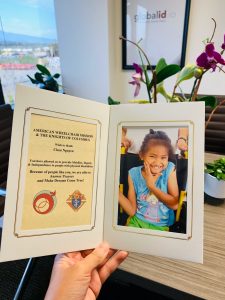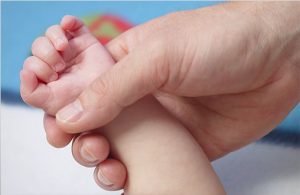Am I having a Heart Attack
Shannon King, Charity Director
Heart attack. That phrase alone makes us all a bit uneasy, and for good reason. Heart Disease is the number one cause of death in adults in the United States. Each year, about 735,000 Americans suffer a heart attack. Those that reach the emergency room have a very good chance at recovery. Surviving a heart attack with modern treatment exceeds 90%. Those 1-10% who die later, often do so because of the major damage done to the heart tissue before their arrival at the emergency room or suffer additional damage later.
A heart attack, or myocardial infarction, is damage to the heart muscle that occurs when the muscle is deprived of the oxygen it requires for proper function. If a heart attack is severe, it can lead to cardiac arrest. Cardiac arrest occurs when the heart stops beating and death is imminent. Heart attack is not the only cause of cardiac arrest, which can also be caused by conditions such as serious arrhythmia or shock.
Knowing your risk is extremely important. Talk with your doctor about your risk and be sure to inform your family. We need to be knowledgeable and prepared to care for one another. Information regarding your risk may be embarrassing to disclose, but making sure that you loved ones are prepared to act swiftly can be the difference between life and death. Being prepared is key. Your doctor may advise or prescribe you to carry Bayer Aspirin with them always. Low dose aspirin helps to thin the blood, reducing the chances of blood clot formation. Key chain pill cases are available to make it easier and convenient. If you are a heart attack survivor, your doctor may prescribe an aspirin regimen, which can reduce your changes of a second heart attack by 30%.
Some heart attacks occur suddenly and intense, but most start more slowly. Knowing the early signs and symptoms of a heart attack are critical for prompt recognition and response. Heart attack symptoms can very among individuals and many may not be sure of what is happening. If you have had a heart attack before, the next one may come with different symptoms. It’s important to know that women often experience different symptoms than men. Information comes from the reporting of symptoms, so men and women may be using different descriptions of the same physical experience. Men tend to be more macho in their descriptions where women may be more open and descriptive of what they are experiencing.
Never ignore the following symptoms, especially of you are experiencing more than one.
- Chest discomfort, pain, fullness or squeezing sensation
Chest pain is the most common symptom although it may manifest in different ways. Sometimes it may not occur at all. Pain may last for a few minutes. It may go away and return. Pain, often reported as “sharp”, may spread to the head, neck, between the shoulders in the back, and down the arms. Pain in the left arm is more commonly reported but can occur in both.
- Jaw pain, toothache, or headache
As pain can spread to the head, jaw, back or down the arms, some people report experiencing a headache or toothache. Sometimes these symptoms can occur without chest pain at all.
- Shortness of breath
You may experience having trouble breathing for no apparent reason. This can occur suddenly and be very frightening. Shortness of breath may come as feeling short of breath, or gasping known as dyspnea, as if you have just run up a flight of stairs. This may occur before or during chest pain but in some cases chest pain may not occur.
- Nausea
Although a less common symptom but shouldn’t be ignored. This may be experienced from the upper GI to the lower abdomen and is usually described as a discomfort rather than a sharp pain. Women are more likely to experience these nausea related symptoms. The nausea is often described as indigestion, or a feeling like you ate something that you shouldn’t have and may come with abdominal cramping. Excessive burping may also occur. The nausea can become severe and lead to vomiting.
- Sweating
It is normal to sweat under stress, but excessive sweating without a stressors present may indicate a heart attack. The skin will often appear pale, feel clammy and cool to the touch. Women often shrug off this symptom as it can feel hormonal like hot flashes or blame it on their menstrual cycle.
- General malaise (vague feeling of illness)
You may feel like you are coming down with something. People often describe feeling fatigued or exhausted. Lightheartedness or fainting may occur. Some people experience severe anxiety and feelings like a panic attack. Women often miss this symptom as we tend to burn the candle at both ends taking care of everyone and everything around us, except ourselves.
- Disrupted sleep
Women often report waking up in the middle of the night unable to breathe. This form of sleep apnea can occur during a heart attack, compressing the upper airway and cutting off essential blood flow to the heart.
If you experience any of these symptoms, and suspect a heart attack, immediately call 911, and crush or chew an aspirin, as directed by your doctor. Aspirin, taken during or after a heart attack, can minimize the damage to your heart. *Aspirin may not be appropriate for everyone. Before taking aspirin, check with your doctor or pharmacist, especially if you are taking other medications.
Being familiar with your risk and the risk of your loved ones, along with knowing the signs and symptoms of a heart attack can save a life. Knowing how to administer CPR is an important life skill that will help to maintain blood flow to the heart until paramedics arrive. It’s ok if the person isn’t breathing, oxygen is still present in the blood and is essential for the health of the heart and other organs. For information on CPR certification, please contact the American Heart Association or the American Red Cross.
http://www.heart.org/HEARTORG/CPRAndECC/CPR_UCM_001118_SubHomePage.jsp


